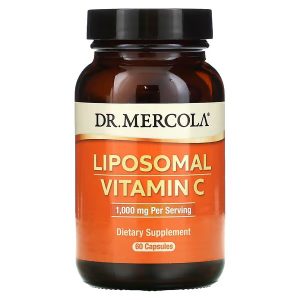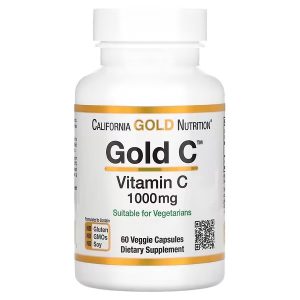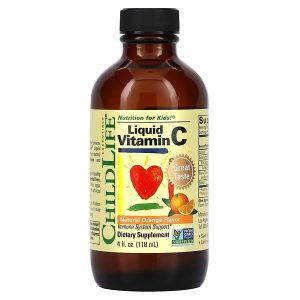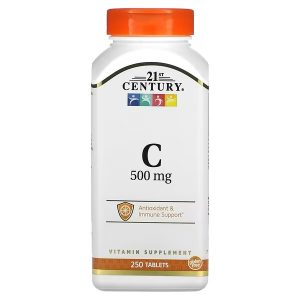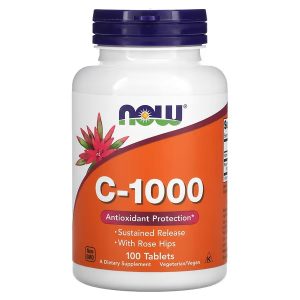Unlocking the Secrets: What is Vitamin C Good For in Your Daily Health Regimen?

Vitamin C, a vital nutrient in the landscape of our health, has garnered widespread attention for its myriad benefits. Often celebrated as an immune system champion, its role extends far beyond just warding off colds. This article delves into the diverse capabilities of Vitamin C, answering the pivotal question: What is Vitamin C good for? Whether you’re looking to enhance your diet with natural sources or considering supplements, our guide offers a comprehensive look at this essential vitamin’s impact on overall health and well-being.
What is Vitamin C?
Vitamin C, also known as ascorbic acid, is a crucial water-soluble vitamin that plays significant roles in the body. Unlike many animals, humans cannot synthesize Vitamin C on their own, making it an essential dietary component. This vitamin is renowned for its contribution to immune defense, collagen formation, and the absorption of other nutrients like iron. Naturally present in various fruits and vegetables, Vitamin C is also available as a dietary supplement, making it accessible for those looking to boost their intake. Understanding its sources and role is the first step in leveraging its health benefits effectively.
The Immune-Boosting Power of Vitamin C
Vitamin C’s reputation as an immune system ally is well-deserved. It contributes significantly to immune defense by supporting various cellular functions of both the innate and adaptive immune system. Vitamin C is known to enhance the production of white blood cells, which are crucial in fighting infections. Additionally, it acts as a potent antioxidant, protecting these cells from potentially harmful molecules like free radicals. Scientific studies have shown that an adequate intake of Vitamin C can not only reduce the duration of common colds but also improve the symptoms. This makes it a go-to nutrient for many, especially during flu seasons and in times of illness.
Vitamin C and Skin Health
Vitamin C’s role in skin health is multifaceted, making it a popular ingredient in skincare routines. A vital component in collagen synthesis, Vitamin C aids in maintaining the elasticity and resilience of the skin. This function helps in reducing the appearance of wrinkles and promoting overall skin health. Additionally, its antioxidant properties protect the skin from damage caused by UV exposure and environmental pollutants. There’s also evidence suggesting that Vitamin C can help even out skin tone and reduce the appearance of dark spots. Whether applied topically through serums or creams, or taken orally via supplements, Vitamin C can contribute significantly to a healthier, more radiant complexion.
Vitamin C and Its Antioxidant Properties
Vitamin C is highly regarded for its powerful antioxidant properties, playing a crucial role in the body’s fight against oxidative stress. Oxidative stress, caused by free radicals, can lead to cellular damage and has been linked to various chronic diseases, including heart disease and cancer. As an antioxidant, Vitamin C helps neutralize these free radicals, thereby reducing their harmful effects. This protective action is not only essential for overall health but also contributes to the prevention of certain chronic conditions. By including Vitamin C-rich foods or supplements in your diet, you can harness its antioxidant power to support your body’s natural defense system.
Vitamin C for Heart Health
Vitamin C’s influence on heart health is another area where this nutrient shows its versatility. Research indicates that Vitamin C can contribute to lowering blood pressure, a significant risk factor for heart disease. This effect is particularly beneficial for those with hypertension, helping to maintain cardiovascular health. Additionally, Vitamin C’s antioxidant properties play a role in preventing the oxidation of LDL cholesterol, which is a critical factor in the development of atherosclerosis. Regular intake of Vitamin C, whether through diet or supplements, can be a proactive measure in maintaining a healthy heart and reducing the risk of heart-related conditions.
Vitamin C and Iron Absorption
Vitamin C plays a pivotal role in enhancing iron absorption, particularly non-heme iron, the type found in plant-based foods. This is especially important for vegetarians and vegans who might not get enough heme iron from animal products. Vitamin C converts iron into a form that is easier for the body to absorb, thereby preventing iron-deficiency anemia. It is particularly beneficial to consume Vitamin C-rich foods along with iron-rich plant foods to maximize absorption. For individuals with iron deficiency, incorporating Vitamin C can be a simple yet effective strategy to improve their iron levels and overall health.
Recommended Daily Intake of Vitamin C
The recommended daily intake of Vitamin C varies by age, gender, and life stage. For most adults, the average daily recommendation is about 75 mg for women and 90 mg for men. Pregnant and breastfeeding women require a higher intake, typically between 85 to 120 mg per day. Children and adolescents have lower needs, varying from 15 to 75 mg depending on their age. It’s important to note that the body cannot store Vitamin C, so regular intake is essential. While it’s generally safe, consuming high doses (above 2,000 mg daily) can lead to side effects. As always, it’s recommended to consult with a healthcare provider before making any significant changes to your vitamin regimen, especially if you have specific health conditions or are on medication.
Potential Side Effects and Interactions
While Vitamin C is generally safe and well-tolerated, excessive intake can lead to side effects, particularly when taken in high doses. Common side effects include digestive disturbances such as diarrhea, nausea, and abdominal cramps. Exceeding the upper intake level of 2,000 mg per day consistently might also result in more severe symptoms like kidney stones. Additionally, Vitamin C can interact with certain medications, including chemotherapy drugs and statins, potentially affecting their efficacy. It’s crucial to discuss with healthcare professionals before starting high-dose Vitamin C supplements, especially if you have underlying health conditions or are taking other medications.
Best Vitamin C Supplements
When it comes to supplementing with Vitamin C, there are several options to consider. Vitamin C supplements come in various forms, including capsules, chewable tablets, powders, and liquid drops. The choice often depends on personal preference and specific health needs. For those looking for a quick and convenient option, capsules or tablets are popular. Powdered and liquid forms can be more suitable for individuals who have difficulty swallowing pills or want to mix their supplements with food or drinks. It’s important to select supplements from reputable brands and to check for additional ingredients, such as bioflavonoids, which can enhance absorption and efficacy. As always, consult with a healthcare provider to determine the most suitable type and dosage of Vitamin C supplement for your individual health needs.
|
Dr. Mercola, Liposomal Vitamin C, 500 mg, 60 Capsules Liposomal Vitamin C works as a powerful antioxidant and nutrient to support immune and organ health by protecting vital elements in your body against harmful free radicals. This formula provides 1000 mg of Vitamin C per serving, effective absorption and meets 100% of the daily value of vitamin C your body needs. |
|
| California Gold Nutrition, Gold C, USP Grade Vitamin C, 1,000 mg, 60 Veggie Capsules
Vitamin C is a well-known essential vitamin that you must get from your daily diet, as your body is unable to produce it. California Gold Nutrition Gold C™ contains a powerful dose of this vitamin, helping to ensure you get your recommended daily amount in one easy step. |
|
|
ChildLife Essentials, Essentials, Liquid Vitamin C, Natural Orange, 4 fl oz (118.5 ml) ChildLife® Vitamin C is a great tasting liquid with natural orange flavor to ensure ease of use for children of all ages.For immune support and environmental protection, use ChildLife® Vitamin C daily as a vital antioxidant. When needed, use with Childlife® First Defense and Childlife® Echinacea. ChildLife® uses only the highest quality ingredients. |
|
| 21st Century, Vitamin C, 500 mg, 250 Tablets
Well known for its ability to support immune system health, vitamin C also protects your body from free radicals. 21st Century’s Vitamin C formula 500 formula helps neutralize free radicals and keep your immune system healthy. |
|
| NOW Foods, C-1000, 100 Tablets
Vitamin C is a water soluble nutrient well known for its vital role in the immune system. Vitamin C is also necessary for the production of collagen (a structural protein in connective tissue) and is therefore important for skin, bone, and joint health. Vitamin C is needed for amino acid metabolism, neurotransmitter synthesis, and the utilization of many nutrients, such as folic acid and iron. It is also a highly effective antioxidant that can help maintain healthy tissues by neutralizing free radicals generated during normal metabolism and exposure to environmental stressors. This product was specially formulated to provide a sustained release of vitamin C and includes rose hips as an added source of vitamin C. |
Vitamin C, with its wide array of health benefits, is undeniably a key nutrient in maintaining overall wellness. From boosting the immune system to promoting skin health and aiding in iron absorption, its role in the body is multifaceted. While it’s commonly available in many fruits and vegetables, supplements offer an alternative way to ensure adequate daily intake, especially for those with dietary restrictions. Remember, while Vitamin C supplements can be beneficial, they are not a substitute for a balanced diet. Consult with healthcare professionals for personalized advice, especially if you have specific health conditions or are considering high doses. Embracing a lifestyle that includes sufficient Vitamin C is a step towards a healthier, more vibrant life.
Check out The Comprehensive Guide to Vitamin B12 posted recently.
